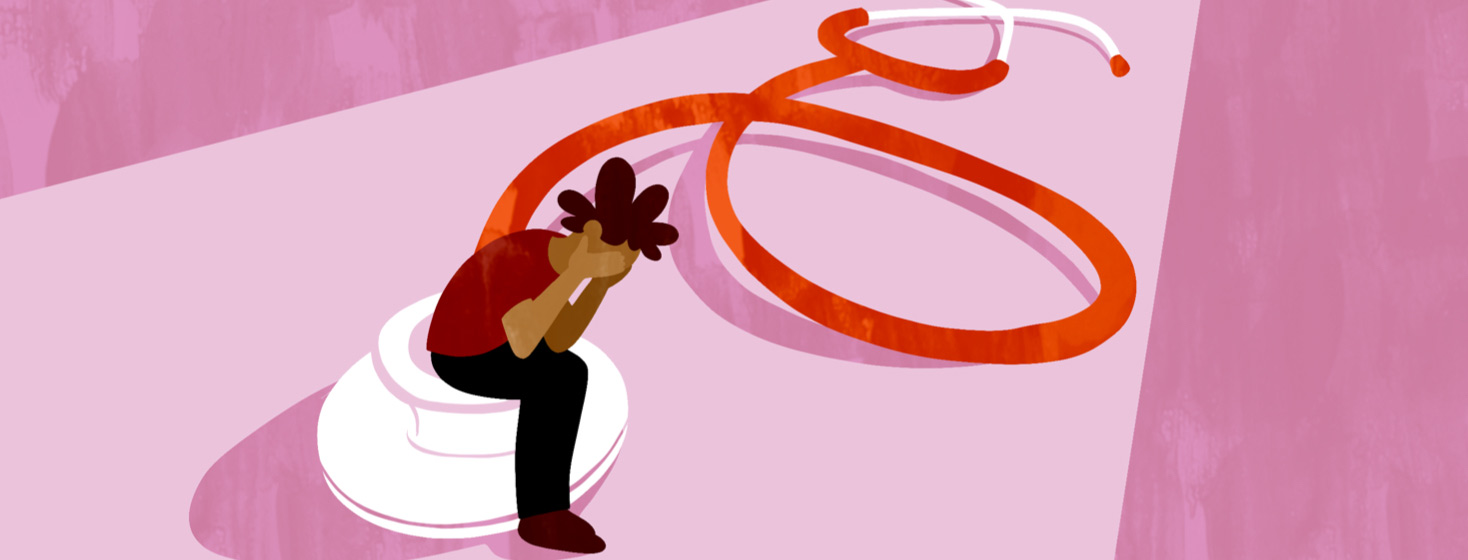What It Feels Like When Your Doctor Doesn't Listen to You
It seems like many doctors don't listen to their patients, and when it comes to patients with mental illness, the problem tends to be even worse. Sometimes, I've been lucky – and other times, not been lucky – in this regard.
One thing I know for sure is that it's terribly detrimental when a doctor doesn’t listen to you, and it's the patient who pays the price, not the doctor.
My psychiatrist didn't listen to me
When I went to a psychiatrist for help with my mental illness, I already had a strong suspicion that I had bipolar disorder type II. While you should never self-diagnose, in my case, I had done a lot of research and saw myself and my life experiences in that diagnosis quite clearly.
My psychiatrist disagreed, however. He felt I had minor depression. The "minor" part was outrageous, given how suicidal I felt.
This diagnosis doesn't seem right
When the psychiatrist came up with a wildly different diagnosis, I felt it was because he wasn't listening to me. He wasn't listening to me when I talked about my desperation, hopelessness, and suicidality. And he wasn't asking about my experiences in a way that would even uncover hypomania – it felt like he refused to even look for it.
I think I had 2 major feelings leaving that appointment: helplessness and hopelessness. Both are incredibly detrimental to a person already experiencing severe depression.
The value of bipolar support groups and therapy
I've found one of the things many seriously ill people need most is for someone to just listen to them and validate their experiences. It's one of the reasons that support groups and therapy work so well.
Those situations do that. They don't ignore you. They don't tell you you're wrong. They don’t deny what you’re saying.
This or That
Have you found the right medication for you yet?
When psychiatrists make us feel helpless
But when a doctor doesn't listen and doesn't validate your experience – whether it's diagnostically relevant or not – it's incredibly disheartening. It feels hopeless because if the doctor refuses to listen to what is really happening, how will you ever get better?
It's also incredibly disempowering. You have no control over what’s happening in that tiny little room, let alone on your treatment as a whole, if your doctor refuses to listen to you. This creates a feeling of helplessness.
I thought you were here to help?
When I left my psychiatrist's office that day, I felt worse than when I went in because of this helplessness and hopelessness. The one person who was supposed to save my life wasn't even acknowledging that it needed saving.
I know it’s not fair to ask a person who is sick to compensate for a doctor who isn't doing their job in the first place, but unfortunately, that's the position we're in when a doctor doesn't listen.
How to manage a doctor who won't listen
If your doctor won't listen to you, consider these things:
- Educate yourself before the appointment so you can make a case for what you're trying to say. For example, if you feel you're on an upswing to hypomania, have the evidence that you feel that way at the ready.
- Speak in their vernacular if you can. If you can learn a few psychiatric words and know how to use them, this can help you get your point across in a way that they are more likely to hear.
- Speak up. You can say in the appointment, "I feel like you're not listening to what I have to say." You could, instead, say, "I'm not sure I'm getting my point across. Can you tell me what you heard?"
- Bring notes. Write down what you need to say before you get into the room so you know you are getting across the points that are important to you.
I want trust in my bipolar treatment
Finally, try to give your doctor the benefit of the doubt. They may be trying to understand you but just aren't being successful.
But if you have a doctor who refuses to listen to you repeatedly, it's probably time to find a new doctor. You can't get better if you can't successfully relay the problem.
